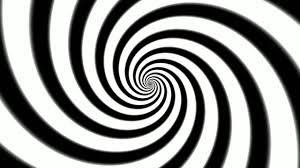记忆方法
将“hypnotic”分解为“hyp”和“notic”,前者联想到催眠(hypnosis)的快速和强烈的特征,后者想象为注意(notice)的强化,结合起来形成一个画面:某种东西或状态(如声音或景象)如此引人注目和迷人,以至于它能像催眠一样强烈吸引人的注意力。
以上内容由AI生成, 仅供参考和借鉴
中文词源
hypnotic 催眠的
hypno-,睡觉,催眠,-otic,形容词后缀。
英语词源
- hypnotic (adj.)
- 1620s, "inducing sleep," originally used of drugs, from French hypnotique (16c.) "inclined to sleep, soporific," from Late Latin hypnoticus, from Greek hypnotikos "inclined to sleep, putting to sleep, sleepy," from hypnoun "put to sleep," from hypnos "sleep" (see somnolence). Modern sense of "pertaining to an induced trance" first recorded in English 1843, along with hypnotist, hypnotize, both coined by Dr. James Braid. Related: Hypnotical; hypnotically.
权威例句
- 1. The hypnotic state actually lies somewhere between being awake and being asleep.
- 催眠状态实际上介乎清醒和睡眠之间。
- 2. Everyone is familiar with the TV screen's hypnotic power.
- 大家都很熟悉电视屏幕的吸引力。
- 3. His voice had an almost hypnotic effect.
- 他的声音有一种近乎催眠的作用。
- 4. She was again the victim of the city's hypnotic influence.
- 城市催眠般的魅力又一次让她上当受气.
- 5. His songs are often both hypnotic and reassuringly pleasant.
- 他的歌声经常让人在沉醉的同时又感到放松愉悦。
